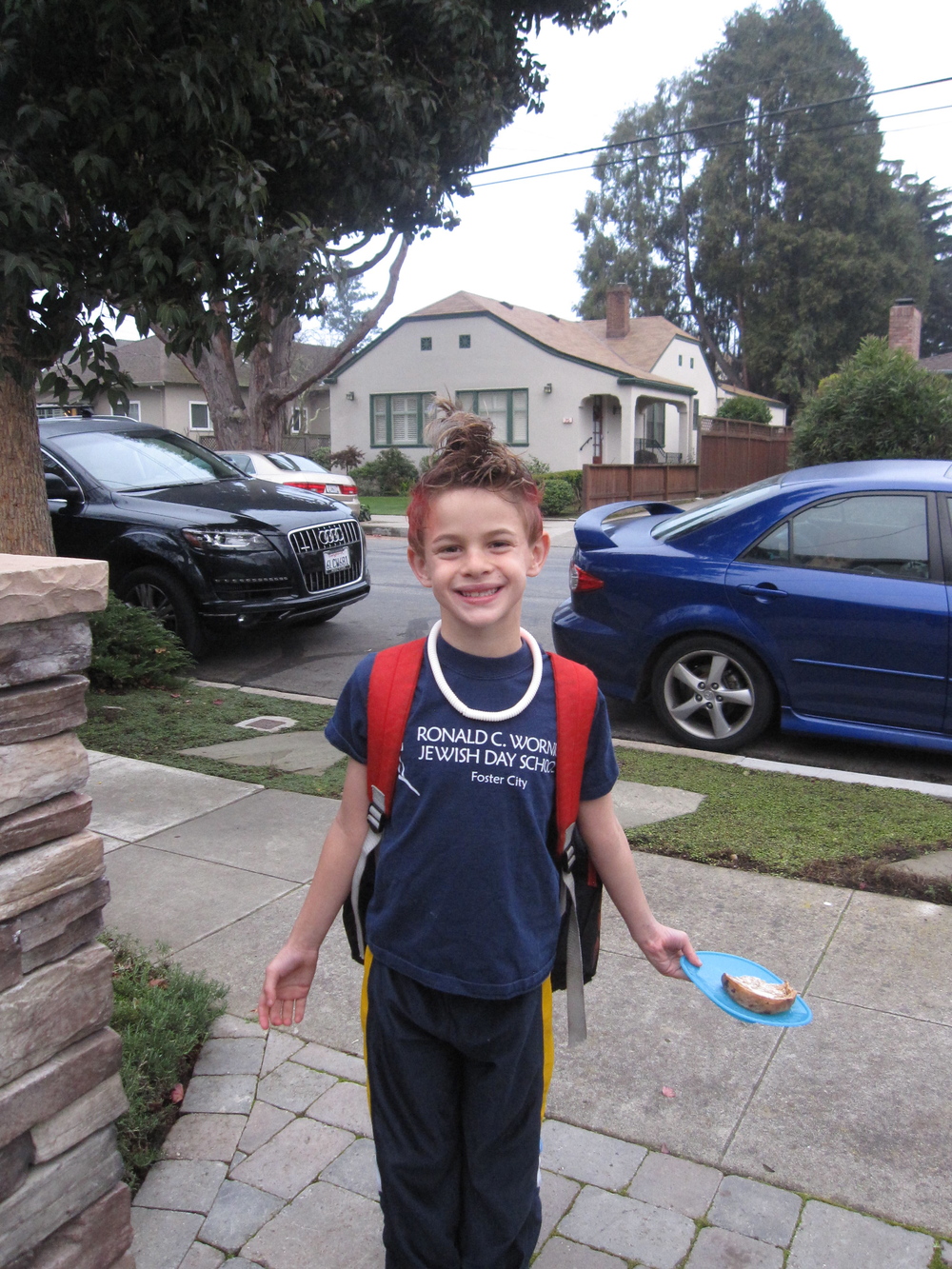Ideas for impulsive boys
Parenting can be very lonely - especially when your child is frustrating or embarassing you. I started writing to share my experiences and join a community of practical, grounded parents who know there are no perfect children or perfect parents, but want to enjoy parenting. A mother of a 6 year old boy recently contacted me for ideas to help her with her impulsive child.
My 6 year old son struggles with behaviors as you described of your son. He's impulsive and is very short fused. I was curious to know some of the strategies you have tried with your son. My son has especially gotten bad over the summer. (I am a teacher and so he stays home with me). I just feel so bad for him b/c he can be so good but I know SOMETHING is bothering him and making him act like this. Please help!
I'm not a mental health professional or a teacher - so I'll share what's worked for us as just that - personal experience and no more.
- Take a look at sleep. My son is much more impulsive when he's slightly tired - like 30 minutes off. We forgo homework, which I hope your six year old doesn't have, time with us and pretty much everything else in exchange for going to bed at the same time every night.
- Try a simple reward chart - it has to be broken into very short intervals and he has to know what success looks like - so be specific. He should be able to earn points every 15 minutes and when he has a lot of points, there's some reward (a favorite meal, time one on one with a parent, in my son's case - time in a batting cage). Examples are (in 15 minutes intervals): waits turn to play/speak, responds the first time asked, shares a toy.
- Give him an alternative way to express his physical energy - and it will be a physical alternative. We gave my son a soccer trainer where he could kick the ball very hard and it wouldn't go anywhere. We taught him some yoga positions that he could create pressure on his body that would calm him. We got him permission to go run/pushups/burpees/squats. Something that could not hurt someone else and would help him burn the energy.
- He's reacting because he is hurt. Something or someone frustrated or hurt his feelings. Don't invalidate what he's feeling (even if it seems trivial or out of proportion). Validate it - son, I think you are upset/hurt/frustrated. Son - tell me what upset/hurt/frustrated you. I'm sorry you feel that way, it must be very hard. We may not be able to change what happened, but we can choose what happens next. What would you like that to be? Make sure every adult who supervises him follows this sort of script - he'll calm down much faster if you don't fight him. This doesn't mean approval - just validate his feelings before holding him accountable for his choices.
- Try to teach him a mantra or other mechanism to cool off when he feels upset. This is really hard for adults - but if you can make it a habit - count to twenty in three languages, add two really big numbers together, something that redirects his mind - you'll help him for life.
He's a work in progress and virtually every interesting, driven man I know was an impulsive and hot headed youth.
When he is closer to 8, if its still an issue, I recommend investing in comprehensive academic, cognitive and behavioral testing with a psychologist qualified and experienced to do all three. We discovered that our son is exceptionally bright/gifted - but that his brain processes information incredibly fast yet auditory processing was well below average. "People talk too slow" - and he hears so well that all the other noises get in the way while he is waiting for people to talk faster. Once we and his teachers understood his gifts and his issue, we could insist on providing directions to him in writing and giving him an escape from assemblies when the sound is too much.
One thing I noticed you mentioned is that your son found some sort of release. That is something I am having trouble finding with my son .... other than video games ... *sigh*. Also, We had my son evaluated by a preschool team and they did say that he is very bright/gifted but also has trouble processing information.
Do you also think that summer vacation is especially hard on kiddos like our boys b/c it is less structured? What can I do to help that? Should I have a set schedule every day (soooo not my personality haha)
We have very strict rules on video games - during the summer, they can use them for 2 hours on the weekend (while we sleep) and one hour, twice a week. They have unlimited use of Kahn Academy and Typing Ace. But they are older than your boy - frankly, I'd take away the power cords to the video machines for a few weeks so that he learns another soothing solution.
We make our kids read a book, go outside, draw a picture. I believe (and there is research to support it) that video games are soothing/brain numbing. Does your son like sports? building things? music?
Finally, I live by routines. The kids know what to expect and when to expect it. In between those structures, they are free. It's much less anxious for the kids and we find behavior is much better. For example, they know they are leaving the house by 8am. So when they get up, they have to get dressed, eat, organize their stuff before 8am. They can do whatever else they want as long as those three things are done. Then they go to camp during the day - or have some sort of input into their day (we're going hiking and then swimming...you can play outside for a few hours, then we are going shopping). So - I would suggest creating a predictable routine with plenty of time for self-expression, imagination and unstructured play. But let them know when it will end so that they can plan their play. Teaching executive function while you are at it.
It's not easy - but parenting never is. Impulsive kids are interesting, creative, energetic and once they learn to harness their capabilities - they truly shine.


